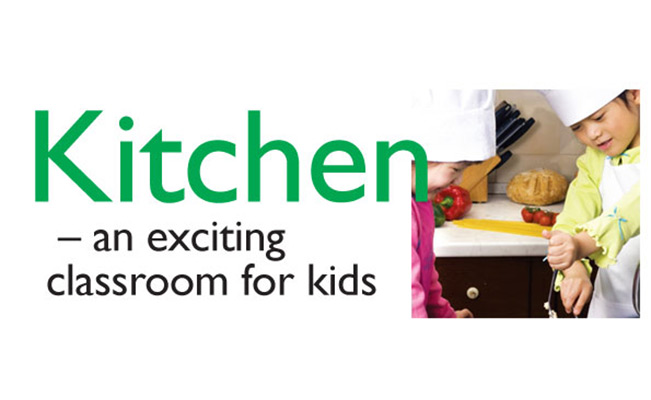
When kids reach the age of 6 and above, they may develop an interest in what happens in the kitchen.
1. Cooking teaches kids about eating well
Kids are usually open to chats about nutrition. Plan a menu with them so they can learn to make smart choices. Expose them to the different food groups and encourage them to experiment with foods they might not otherwise try. Kids who have a hand in cleaning the vegetables would be a little more willing to sample them at the table.
2. Sharing food means sharing memories and good conversation
Grandma's special "kuih lapis" recipe opens the opportunity to pass on a family tradition. Tell your kids about the foods you liked as a kid. Encourage them to think with questions like: 'To make a really colourful dinner, which foods would you include?'
3. Cooking can foster responsibility
Kids first learn to follow recipe instructions, and then they learn to clean up when the project is completed. They also learn to put things back where they belong and how to handle kitchen equipment safely. All this helps to nurture a sense of responsibility and commitment.
4. Your kitchen as an exciting science lab
As kids learn to crack eggs and stir sauce, they also gain new science, language and math skills. Basic math skills ('are we putting in more salt or baking soda?'), sequencing skills ('what is first…next…last?') and fractions ('is this ¾ of a cup?'). Reading recipes can improve reading comprehension. The simple act of sprinkling salt on an ice cube demonstrates basic science principles.
5. Nurturing closer ties between siblings
As kids learn to crack eggs and stir sauce, they also gain new science, language and math skills. Basic math skills ('are we putting in more salt or baking soda?'), sequencing skills ('what is first…next…last?') and fractions ('is this ¾ of a cup?'). Reading recipes can improve reading comprehension. The simple act of sprinkling salt on an ice cube demonstrates basic science principles.
Simple tasks for younger kids
By the time kids are in primary school, they have the coordination to complete a lot of simple kitchen tasks, such as:
• Mashing potatoes or bananas
• Peeling apples (use a safe peeler instead of a knife)
• Sifting and stirring ingredients
• Beating eggs
• Rolling cookie dough
• Using cookie cutters
• Spreading on toppings, such as chocolate sprinkles
More challenging projects for older kids
Older kids are probably ready for a bigger challenge. So here's what you can involve your kid in:
• Let him take the lead on choosing and preparing a more involved dish.
• Once he's decided, get him to make the grocery list.
• Ask him to let you be his assistant so you can supervise or take over any task that requires the stove, oven or knives.
Once the dish is ready and enjoyed by the family, don't forget to shower the chef with compliments!
How to get started with kids cooking
Choose a simple meal like breakfast. Maybe a morning of a holiday when there's no rush for school or office is a good opportunity. Start with something simple that you know your kids would like.
Pick a recipe with no more than five ingredients. Like French toast, scrambled eggs or sandwich.
Do the prep work. Set up a sturdy stool or chair where your kid can stand and reach the counter. Set out the recipe and ingredients you will need, the measuring cups and spoons. It's always a good idea to have extra ingredients on hand, just in case of a mishap..
Managing the Mess
Definitely having kids in your kitchen will mess it up more than usual. Instead of fretting and fuming, set some simple ground rules so your kids will not be terrified of making mistakes and annoying you. Let them know they can have fun and the occasional spills are acceptable, but they must not be careless and messy on purpose.
Asserting your control
How far should you let your kid experiment with recipes, making changes in the directions and ingredients? The best way is to let kids experience for themselves. For example, let them taste the difference between salt and flour or by comparing the scents of vanilla, cinnamon, and ginger. Then, they will learn the effect of their choices.
A budding Chef in the family?
A kid who shows a real interest in cooking might be ready to tackle more advanced cooking techniques. It takes practice to garnish, drizzle, and zest but learning these skills will be fun for a kid with culinary interests. If your kid wants more expertise than you can provide, consider cookbooks, DVDs, and cooking classes for kids.